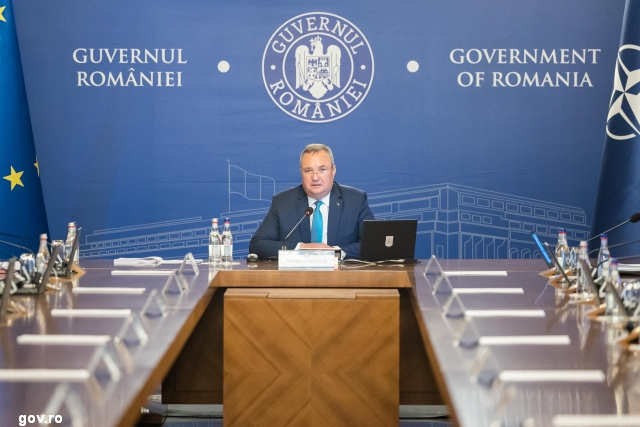Projects for 2023
Healthcare, education and investments are the priorities of the Romanian government this year.

Leyla Cheamil, 09.01.2023, 13:50
Healthcare,
education and investments, including meeting the targets and
milestones laid down in the National Recovery and Resilience Plan,
are the main areas benefiting from greater attention this year. Prime
minister Nicolae
Ciucă said a number of projects targeting these sectors were agreed
by the government and together with Romania’s EU and strategic
partners. He warned, however, that carrying them through requires
solidarity, national empathy, dialogue with the social partners,
collaboration with all institutions, better cooperation among the
different ministries and political stability. We’ve already
discussed to finalise and agree on the education bills so as to be
able to submit the package of laws to Parliament for debate as soon
as the parliamentary session begins, he explained.
The
government has already published for public consultation a draft
order on funding scholarships abroad for masters, doctoral,
post-doctoral and research programmes. The monthly amount of the
scholarship is 1,000 euros, with the Romanian state also covering the
cost of transportation from Romania to the country of study and
return. After the completion of the study course, the person
benefiting from the scholarship will resume their university and
post-university studies back in Romania. Education minister Ligia
Deca says this will help train specialists in areas of maximum
interest for Romania, such as energy, bio-economy,
eco-nanotechnology, Transatlantic affairs, international affairs,
diplomacy and European governance. She believes these university
courses abroad will improve the quality and the applicability of
Romanian research by harmonising it with the new trends in research.
As
for the medical system, the government is considering measures to
improve it such as modernising hospitals with funds from the National
Recovery and Resilience Plan and other European projects.
Prime
minister Ciucă also believes that Romania may be able to reach an
absorption rate of EU funds of 95% by the end of the year. In a
social media post, he recalled that Bucharest last year received 11
billion euros from the European Union, the biggest amount since the
country joined the community bloc. He said the absorption rate grew
last year from 50% to over 70%. The European money entering Romania
must support investments, first and foremost, he said, so that the
country’s economy may be able to cope with the challenges faced by
the European and global economy. (CM)






























